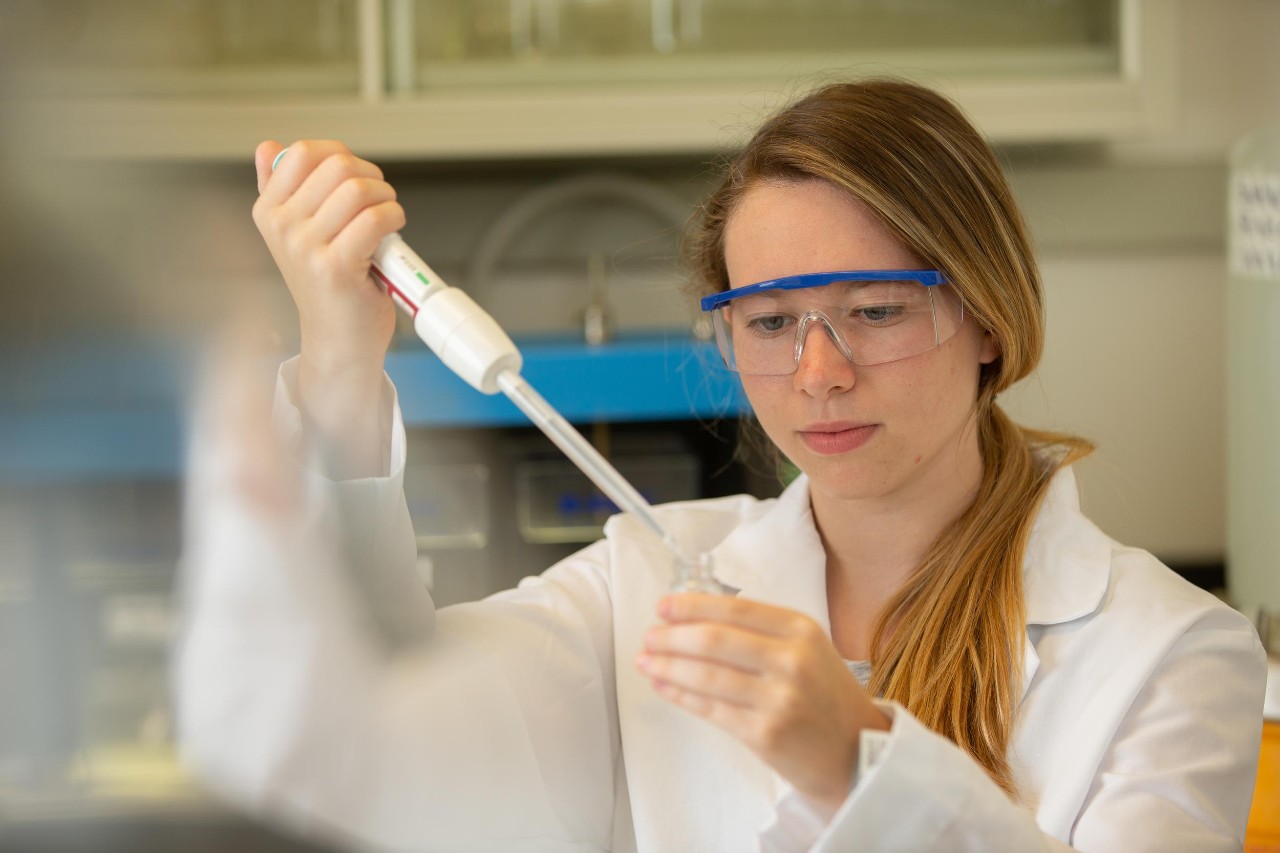
Researchers see breakthrough in efficient biofuel production
MSN, Tech Explore highlight UC, national lab collaboration
MSN and Tech Explore highlighted a research collaboration between the University of Cincinnati and the Oak Ridge National Laboratory exploring how alcohol produced by biomass is deadly toxic to biomass cells.
Understanding how this happens could help scientists create more efficient production of this renewable energy.
In a study published in the journal Langmuir, researchers reported on their breakthrough in understanding the vulnerability of microbes to the alcohols they produce during fermentation.
With the national lab’s neutron scattering and simulation equipment, the team analyzed fermentation of the biofuel butanol, an energy-packed alcohol that also can be used as a solvent or chemical feedstock.
Butanol is toxic to the very microorganisms that produce it. This toxicity limits the amount of butanol that can be generated during fermentation, presenting a challenge to bio-based production, said Jonathan Nickels, an associate professor of chemical and environmental engineering in UC’s College of Engineering and Applied Science.
“We investigated the biophysical basis for this hypothesis, and now we've demonstrated that it physically checks out,“ Nickels told Tech Explore.
Featured image at top: Researchers in UC's College of Engineering and Applied Science are working to produce biofuel more efficiently. Photo/Unsplash
More UC chemical and environmental engineering news

Students in UC's Department of Chemical and Environmental Engineering work on research alongside experts in government and industry. Photo/Andrew Higley/UC Marketing + Brand
Related Stories
News Record: UC Engineers Without Borders makes impact
January 22, 2021
The University of Cincinnati student chapter of Engineers Without Borders makes a life-changing impact at home and abroad by helping to build schoolhouses and bring clean water to people who need it.
Enquirer: Power to Cincinnati water plant failed
October 6, 2022
UC engineering professors explain significance of Cincinnati water plant shutdown in May.
WCPO: UC students work on COVID-19 surveillance to prevent surge
January 31, 2024
WCPO highlighted the Ohio Department of Health's COVID-19 surveillance program that UC engineering students oversee. UC Associate Professor David Wendell recruits students to help monitor wastewater to track the virus on campus.
